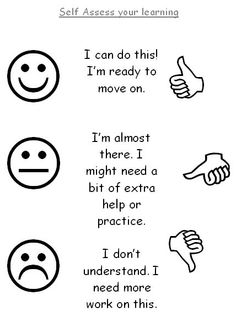I know that the wildly popular 'Learn a new word' series on the blog is meant to be a semi-regular Thursday feature, I didn't want to let this new term I just came across languish for another 24 hours, hence we have the first iteration of 'Learn a new word Wednesday.'
Today's word/term helps us understand the problems we have had in our own careers and in our own organizations with an element of the traditional performance management process known as the 'self-assessment' or 'self-rating.'
You know, that component of the typical performance management process (usually positioned at Step 1), where you and everyone else is meant to attempt to quantify your own skills, competencies, progress towards meeting whatever goals were set for you way back when.
Let's see, do I give myself a '3' or a '4' for 'Tolerance for Ambiguity?' If I go with the '4', does that make me look like someone who is just trying to prop myself up above the other jokers in the group? But if I only give myself a '3', then that will make it easier for my manager to rate me as average too, since if I only think I am a '3' then why should she disagree with me?'
It's a nightmare, no doubt.
Which brings us to today's Learn a new word. Let me introduce, (apologies if you have heard of this before, it was new to me over when I saw it) - The Dunning-Kruger Effect.
From our pals at Wikipedia, (so you know this is true):
The Dunning–Kruger effect is a cognitive bias wherein relatively unskilled individuals suffer from illusory superiority, mistakenly assessing their ability to be much higher than is accurate. The bias was first experimentally observed by David Dunning and Justin Kruger of Cornell University in 1999. Dunning and Kruger attributed the bias to the metacognitive inability of the unskilled to evaluate their own ability level accurately.
Their research also suggests that conversely, highly skilled individuals may underestimate their relative competence, erroneously assuming that tasks that are easy for them also are easy for others
There it is, scientific proof that shows that we are all, the skilled and the unskilled alike, (substitute skilled and unskilled for 'average' and 'high' performers and you see where I am going), pretty much incapable of accurately assessing our own ability.
It makes intuitive sense, kind of, that the unskilled or even average performers would assess themselves a little too favorably when given the opportunity - after all who likes to actually admit they are not very good at something? Add into this tendency the crazy pressures and power dynamics that come from the workplace performance management process and you can easily see how self-assessments become really dubious in terms of their value.
On the flip side, the Dunning-Kruger effect tells us that highly skilled performers will over undervalue themselves and their abilities. If I can do this easily, that must mean it is easy to do, goes their thinking.
This is likely the fundamental reason why in sports so many of the very greatest players don't actually succeed in post-playing career efforts at coaching. Playing the game at a high level came so easily to them, that they can't see why it does not come so easily to the normal or average players that they have to coach and mentor, resulting in frustration and suboptimal outcomes.
You might have had a sneaking suspicion as an HR pro of the shaky and questionable value of the self-assessment process. If you did, you know have a fancy term to attach to your POV.
Don't blame the player. Blame the Dunning-Kruger effect.